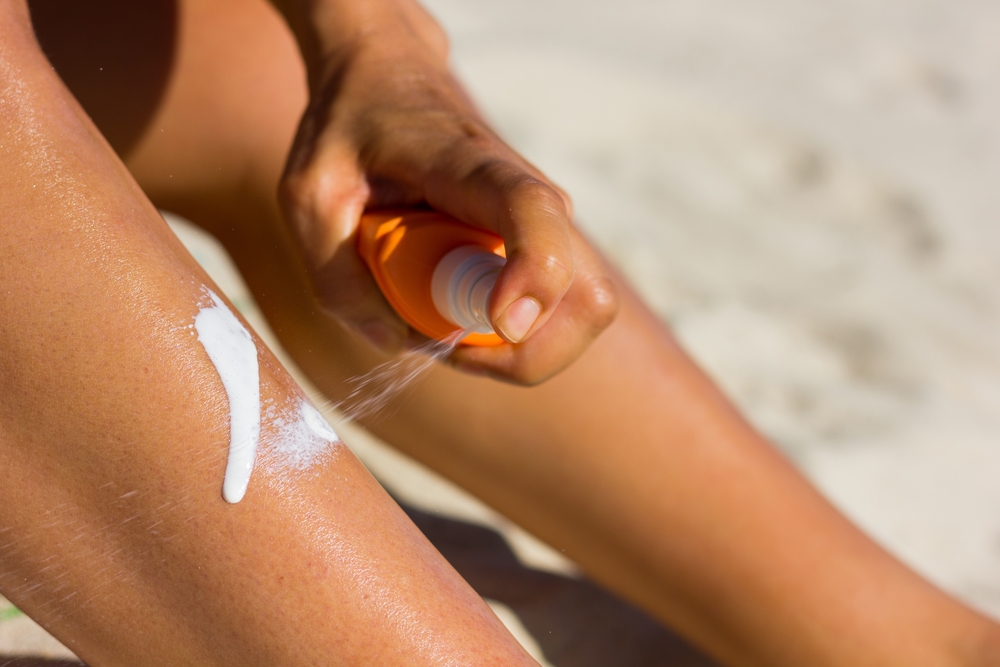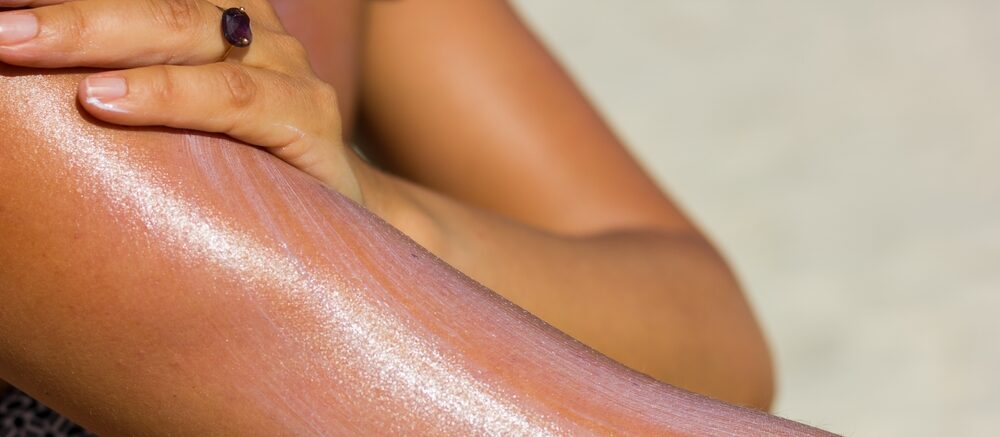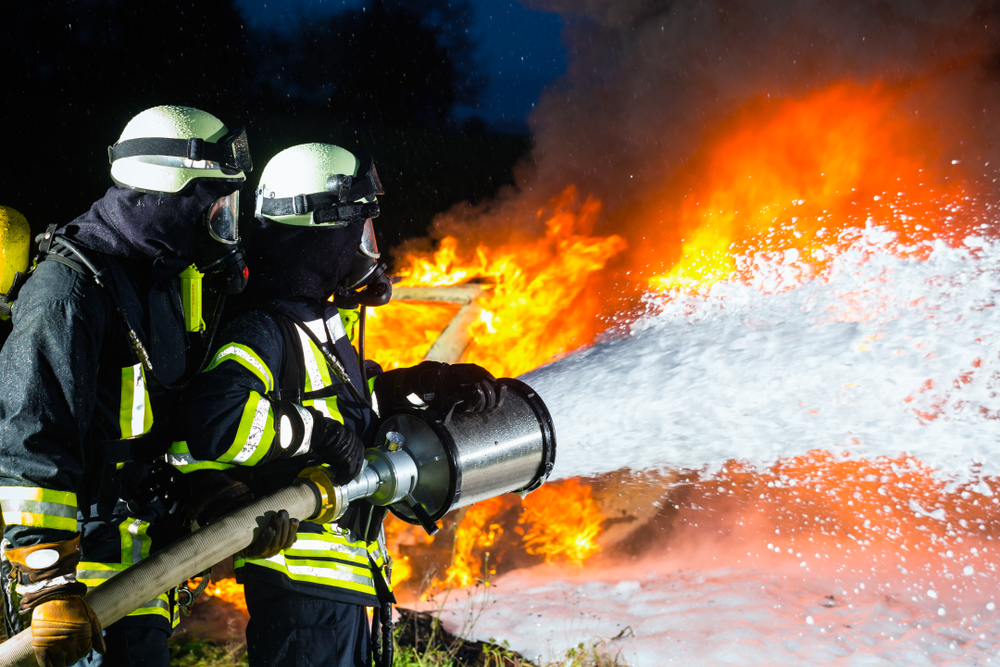A class-action lawsuit was filed after it was discovered that several leading sunscreen brands included benzene in their products. Benzene is a known carcinogen, and its inclusion among the ingredients is not reflected in the labeling. While the May 2025 suit is specifically against Neutrogena and Johnson & Johnson, it is expected that further lawsuits are just around the corner.
If you are a long-term user of one of the sunscreens listed below and have since developed cancer, it may be that you are entitled to compensation for your suffering. It is important to reach out immediately to a lawyer about your situation. Use our online form to be put in touch with an attorney in your area.
- The Discovery of Benzene in Sunscreen
- What Should I Do if I Have Been Affected by Contaminated Sunscreen?
- How Do I Know if I Qualify for Compensation?
- How Does a Lawsuit Against Sunscreen Companies Work?
- Do I Need a Lawyer to Join a Lawsuit Against Sunscreen Manufacturers?
- How Long Does It Take To Settle a Lawsuit Against Pharmaceutical Companies?
- What Is the Statute of Limitations on Pharmaceutical Lawsuits?
- How Much Can You Get From a Benzene Contamination Lawsuit?
- How Long Does It Take To Get Compensation After You Settle a Lawsuit?
- Final Words
The Discovery of Benzene in Sunscreen
In early 2021, online Pharmacy Valisure voluntarily tested over 300 sunscreens and “after sun” products and discovered that over one-quarter of the tested products contained benzene beyond the accepted range set by the Food and Drug Administration (FDA). Upon this discovery, they immediately contacted the FDA, calling for a ban and recall on all the products that contained this dangerous level of benzene.
While there are over 11,000 products on the market today, many of these are rebrandings of the same product. The brands most associated with this breach in the law included Neutrogena, CVS Health, and Fruit of the Earth. Other brands which also contained benzene, but below the limit set forth by the FDA, include Banana Boat, EltaMD, and GoodSense.
It is important to recognize that ordinarily, the ingredients for sunscreen are safe and have saved lives. CEO of Valisure, David Light, said he does not want “anything to be misconstrued, and we’ve stated many times that we want to make sure that people understand this particular problem doesn’t appear to be an issue directly with sunscreen.”
As of July 2021, there are no new batches of sunscreen recalled by the FDA. The professional medical advice is to continue using sunscreen but, if possible, change brands to those noted in the testing to contain no benzene. Consumer should be aware that it is important to continue using sunscreen, as skin cancer is still one of the biggest killers of Americans, with more people diagnosed every year than of every other cancer combined.
The Dangers of Benzene
Benzene is a liquid compound used in manufacturing certain products that can be carcinogenic when a person is exposed to it. The most common form of cancer developed from benzene exposure is leukemia. According to the FDA, benzene is not acceptable if it is not required for manufacturing. Otherwise, this amount must be below two parts per million.
According to Valisure’s study, multiple sunscreen brands contained more than this limit, and many others contained small amounts of benzene. However, benzene is not required in the manufacturing of sunscreen.
Why Benzene in Popular Sunscreens Is Dangerous
That benzene is in a product we use daily is concerning. What’s of even bigger concern, however, is we have recently learned that regular use of sunscreen leads to an increased concentration of the ingredients in the bloodstream. Benzene exposure in the blood is far more carcinogenic than simple skin exposure and may greatly increase the chance of cancer.
Current Lawsuits
In May 2021, Meredith Serota filed a lawsuit against Neutrogena and Johnson & Johnson, not for compensation for damages caused by cancer but for putting the public at risk. This case does not seek punitive damages but requests a refund of sunscreens purchased by consumers since 2017. It also requests the removal of contaminated products.
If this case is successful, it will be considered as legal evidence that the companies are liable for future damages caused by the use of the sunscreen and will become an important precedent in cases for which the plaintiff has developed cancer or leukemia.
What Should I Do if I Have Been Affected by Contaminated Sunscreen?
If you have developed cancer or leukemia in the last twelve months and are concerned that it may be linked to your regular application of sunscreen, you may be eligible for compensation. It is important to record the details of the sunscreen you have been using and not to throw away any bottles you have, as this may be important evidence.
Speak to a lawyer as soon as possible. Continue your medical treatment for your disease. It may be important to continue wearing sunscreen, so it’s a good idea to research which brands have been proven not to contain benzene. Properly manufactured sunscreen is safe and important to our health.
Medical and legal professionals are experts in different areas of your life. Just as you should not seek medical advice from an attorney, you should not accept legal advice from your doctor.
How Do I Know if I Qualify for Compensation?
It is important to discuss with a lawyer if you are qualified to be a part of a lawsuit against Neutrogena, Johnson & Johnson, or other manufacturers. At this point, attorneys are interested in people who meet the following criteria:
- They have been diagnosed with cancer or leukemia since 2017
- They regularly used sunscreen of any brand, but especially those mentioned in Valisure’s report, since 2017. This sunscreen also must be purchased in the USA.
- They are concerned that their sunscreen use may be a contributing factor in their diagnosis.
How Does a Lawsuit Against Sunscreen Companies Work?
The first step in a benzene contamination lawsuit is for you to sit with an attorney and tell your story. These first consultations are usually free.
If your lawyer determines that you have a case, they may work for you against the company. Most lawyers work “on contingency”. This means that you will not have to pay any initial fees and that they will take payment only if they are successful in your case. At this time, you would sign a contract outlining what this eventual fee may be and how it will help you.
After this, your lawyer will ask for any information you have, including medical files, diaries, and statements. Then they will announce to the court that they intend to sue the company. The company may decide to settle with you to avoid a lawsuit, or you may need to fight in court.
After determining your eligibility to begin a suit against a pharmaceutical company, your attorney will help you explore your options. It may be that the best course to justice is an individual case. However, it is sometimes useful to work with other plaintiffs and be a part of a class action or multi-district litigation. In these cases, you may work with dozens or even hundreds of other people who have suffered similar experiences, and your lawyers will be able to pool resources. This can be vital to fight against companies that spend millions of dollars on their own legal teams.
Do I Need a Lawyer to Join a Lawsuit Against Sunscreen Manufacturers?
You do not need a lawyer to be a part of a lawsuit against Neutrogena or Johnson & Johnson. However, it is important to recognize that lawsuits are complicated endeavors and that these companies spend millions of dollars every year fighting lawsuits like yours. To be a part of a class action or multi-district litigation usually requires an attorney.
Personal injury attorneys who fight for people affected by contaminated products generally work “on contingency”, and you won’t need to pay them unless they win your case. Decisions and settlements invariably include the cost of your lawyer. The smart move is hiring experts that can ensure you get the full compensation you deserve.
How Long Does It Take To Settle a Lawsuit Against Pharmaceutical Companies?
Lawsuits can be lengthy affairs. Because of the number of hearings required and the thousands of pages of documents that are carefully examined, some hearings can take years. This is especially true when the law is examining new circumstances, such as is the case against Neutrogena.
Fortunately, it is not required for you to attend every hearing or meeting between parties. Your lawyer can keep you appraised of how your case is progressing and will inform you of those times where you need to be directly involved.
As an indication of the time it may take, we can look at previous cases. For example, Johnson & Johnson is still arguing in a case for Talcum powder victims that began over five years ago. However, they are also preparing to ensure that new cases are fast-tracked to settlement within months.
What Is the Statute of Limitations on Pharmaceutical Lawsuits?
The statute of limitations is the amount of time one has to bring a lawsuit against a company to seek compensation for suffering. This amount of time is sometimes difficult to work out as it depends on where you were when the injury occurred, what the laws of that state say, and when it is determined that injury began. The statute of limitations is generally between 3 to 5 years after injury.
To ensure that you can legally seek compensation, it is important to speak to an attorney as soon as you receive your diagnosis. By using one of our online forms, you will be put in touch with a local lawyer who can speak with you as soon as possible.
How Much Can You Get From a Benzene Contamination Lawsuit?
Compensation for cases generally ensures the company covers all prior and ongoing medical costs for injury caused, but also personal damages for suffering caused to you and your family. As cases against sunscreen manufacturers have just begun, we are unable to say what sort of compensation you may be entitled to.
However, we can look at prior cases for some possible answers. This year, Johnson & Johnson lost their appeal against a $2.1 billion verdict in favor of 22 plaintiffs who had developed cancer due to the contamination of talcum powder.
How Long Does It Take To Get Compensation After You Settle a Lawsuit?
After losing a lawsuit, the defendants are allowed to appeal to higher courts. However, when these appeals fail and final compensation is decided, the money you deserve will arrive relatively quickly.
First, your medical bills are completely paid out, as well as money put aside to pay for future bills. Only then does your lawyer receive fees for all the work they have done to help you win your case. This will be a small percentage of your win, as decided before your fight began.
Once this has occurred, they have less than a week to ensure you receive the remainder of your money via check or electronic transfer.
There are strict laws regarding receiving compensation after a decision, and you are heavily protected by them. While it may be frustrating to have to wait after a decision, be assured that the law is on your side.
Final Words
Benzene is a dangerous carcinogen and should be avoided at all costs. Benzene contamination of popular sunscreen brands such as Neutrogena means that people have been put at risk of developing life-threatening cancer. If you or a loved one has been diagnosed with cancer in the last three years and are concerned it may be connected to regular sunscreen use, contact us today. You will be put in touch with a friendly attorney who can offer free advice and a no-obligation discussion about the next steps available to you.





